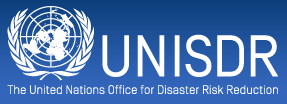Participants at the Central Asia Regional Platform for Disaster Risk Reduction (DRR) underlined that "DRR is development," and must be incorporated into the post-2015 development agenda and the anticipated 2015 climate change agreement.
The gathering, among other Regional Platforms convening around the world, aimed to assess implementation of the Hyogo Framework for Action (HFA) and determine regional submissions for the Post-2015 agreement on DRR to be adopted at the Third UN World Conference on DRR in 2015.
 2 April 2014: Participants at the Central Asia Regional Platform for Disaster Risk Reduction (DRR) underlined that “DRR is development,” and must be incorporated into the post-2015 development agenda and the anticipated 2015 climate change agreement. The gathering, among other Regional Platforms convening around the world, aimed to assess implementation of the Hyogo Framework for Action (HFA) and determine regional submissions for the Post-2015 agreement on DRR to be adopted at the Third UN World Conference on DRR in 2015.
2 April 2014: Participants at the Central Asia Regional Platform for Disaster Risk Reduction (DRR) underlined that “DRR is development,” and must be incorporated into the post-2015 development agenda and the anticipated 2015 climate change agreement. The gathering, among other Regional Platforms convening around the world, aimed to assess implementation of the Hyogo Framework for Action (HFA) and determine regional submissions for the Post-2015 agreement on DRR to be adopted at the Third UN World Conference on DRR in 2015.
The UN Office for Disaster Risk Reduction (UNISDR) organized the Platform, which brought together 150 disaster management officials and experts from eight countries in the Southern Caucasus and Central Asia. The participants sought to build on a consultation held in March 2013, where it was agreed that the group’s contribution to the post-2015 agreement on DRR would include reference to: the need for greater regional and sub-regional coordination; more information sharing on disaster losses; broader stakeholder involvement in disaster risk reduction; more risk-informed planning; and greater gender equality.
The latest consultation, held on 1-2 April 2014, in Almaty, Kazakhstan, resulted in a number of priority recommendations for risk assessments, information sharing and capacity building, school safety, and strengthening women’s role in building disaster-resilient communities. Governments, civil society organizations (CSOs), academia and UN agencies have made voluntary commitments to support these recommendations and their inclusion in the post-2015 agreement on DRR.
Participants noted the impact of disasters on gross domestic product (GDP) and the setbacks they create for sustainable economic growth. The Head of Secretariat of the National Platform for DRR of the Republic of Tajikistan, Jamshed Kamalov noted the importance of managing disasters for their countries’ sustainable development: “Tajikistan realizes that sustainable development is not possible without reduction of vulnerability of population to disaster risks. In this connection, ensuring the conditions and mechanisms for integrating disaster risk reduction in development processes at all levels becomes the priority for the National Platform for Disaster Risk Reduction in Tajikistan.” [UNISDR Press Release] [Platform Agenda]